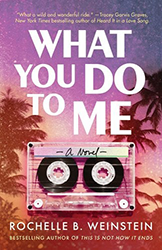Robert Hilburn, former pop music critic of the Los Angeles Times, has written biographies of Johnny Cash, Paul Simon, and Bruce Springsteen, so Randy Newman’s story is right in his wheelhouse. In over five hundred pages, Hilburn covers Newman’s long songwriting career — discussing every album, film score, and award nomination. He reprints selected passages or full lyrics of key songs, highlighting their controversial elements. Closing chapters include appreciative comments from Newman’s children and thoughts about Newman’s plans going forward.
Some of the most insightful sections of the book are toward the beginning, as Hilburn explores the role of record labels in defining a musician’s profile, the challenges of building an album, and the complex relationships of lyricists, composers, and arrangers. He explains that before Newman, the thematic arc of pop was dominated by love songs and (largely upbeat) seasonal tunes. Newman changed the game by writing “message” songs, often infused with contrarian, downbeat points of view. And unlike many of his predecessors, who wrote for others to perform, Newman wrote and performed in his own voice.
Hilburn reports on the accomplishments of Newman’s father and other relatives as well as Newman’s two marriages and his five children. He emphasizes that for Newman, music came first and family came second. Newman’s second wife learned from his first to demand his participation in family activities. She was in charge of family life; in Hilburn’s opinion, this was “natural,” since at the time, “nearly half of the nation’s mothers were stay-at-home-moms.”
Despite this book’s comprehensiveness in other aspects, insight into Newman’s interior life is somewhat lacking. Many chapters are prefaced with comments about Newman from other artists — comments simply reprinted, not explored further. Wesley Morris, for instance, says Newman operates “in the gap between memoir and mockery,” taking aim at his “Jewish whiteness” — but these interesting ideas just hang there.
In the acknowledgements, Hilburn says that after a certain point, Newman had become “uncomfortable” talking with him. Perhaps, out of deep respect for Newman, Hilburn decided not to pursue difficult topics. Perhaps Hilburn asked, but Newman stopped answering. Whatever happened, Hilburn has nonetheless written a very thorough account of Newman’s artistic output, deserving of recognition.
Bettina Berch, author of the recent biography, From Hester Street to Hollywood: The Life and Work of Anzia Yezierska, teaches part-time at the Borough of Manhattan Community College.





